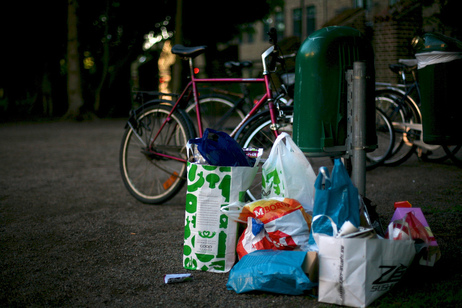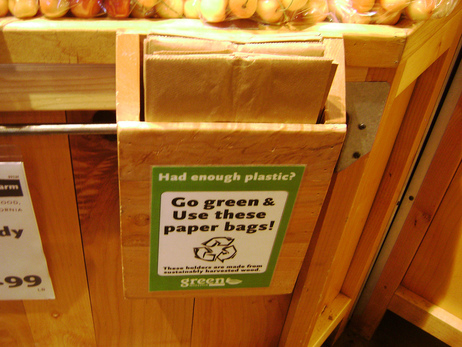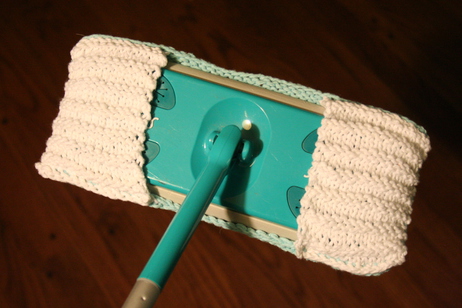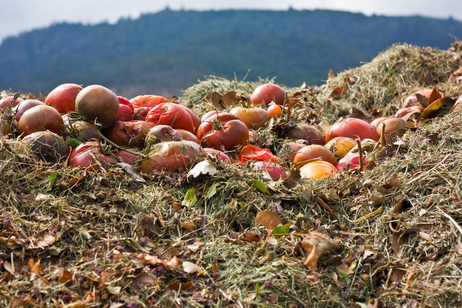The natives of a tiny Himalayan kingdom, Mustang, don't really know what garbage is. They use and reuse all the food and material they have and never throw anything away. On the contrary, the average Canadian produces 777 kilograms of garbage every year according to a report by the Conference Board of Canada. But don't worry — the aim of this article isn't to make you feel guilty. We're not going to try to persuade you to reduce your waste to zero either. We just need to realize that we're using too much energy and leaving too much trash behind — hurting both the planet and our home finances. Check out our list of simple tips to inspire you and help you cut back your home waste significantly.
Garbage by David Petersson
Less Packaging
While packaging plays an important role in protecting the goods we need, it also makes up almost 30 per cent of municipal waste. Even though it's often necessary to get packaged goods, think about buying products with less packaging. There's so much you can do. Avoid buying mini packages of snacks and sweets at the store. Buy them in a big box instead. When it comes to cleaning products, concentrated versions that aren't simply diluted in water might be the way to go. Carry your own reusable cloth bags around, so that you don't need to use plastic bags every time you go to the store. If you really need to get extra packaging, always try to go for paper bags — especially when you're buying meat, pastry, and produce. Paper is less harmful than plastic and looks much better as well. As a general rule, less packaging helps the environment, and companies often make over-packaged products to hide the amount of its content and trick consumers with a seemingly bigger product.
Paper Bags for Groceries via tomatoesandfriends
Say Bye to Throw-Away Culture
In several Western European countries, such as Denmark or Germany, repairing broken electronics as a community or at home is increasingly popular. It's not difficult to find reasons for the trend — after years of getting rid of broken things immediately, people are starting to realize that there's a deeper value in the things that surround us. You could compare the repair hype to the slow food movement, as the goal is to know what you use or eat and feel a connection to the products. This movement isn't trying to prove that throwing away our broken stuff is wrong. It's just suggesting we think twice before we consider some of our household objects or food to be waste.
Harddisk Electronics Transplant by possan
Buy Reusable and Refillable
When you buy durable products, you reduce your trash simply by not having to buy replacements so often. This applies to everything — from using cotton cloths instead of paper wipes through avoiding disposable razors to saying goodbye to throw-away plastic cups and plates. Many businesses also offers special refill services. Try to get an old-school glass milk jug and get refill it at your local dairy — in some areas, you can even order the fresh milk right to your door every morning, just like in the old films. Some alternative beauty shops also provide refills for shampoos, liquid soaps, or lotions. There's usually an extra perk to this approach — the reusable containers are so lovely! And you can apply the same approach to water bottles. Try not to get a new bottle every time you're thirsty. Buy one and keep it. Decorate it, get yourself a special designer model, or choose one of the durable bottles designed for trekking.
Hand Knit Reusable Swiffer Pad by Robin Zebrowski
Be Creative
Try to think of ways to find repurpose things in your home before throwing them away. You can convert glass jars into lamps, and yogurt tubs can hold toothbrushes, crayons, candies — anything you can think of. Old clothes, towels, and bed linens are great as rags and wipes, and more ambitious people can try to make lovely toys for kids and with kids. Keep cardboard boxes and decorate them as you like for storing papers, books, or little toys — there's no need to buy fancy boxes in the store. You can go as far as creating innovative seats out of old magazines. There are no limits here, and the more ideas you come up with, the better.
A Jar for a Lamp by Alan Levine
Stop Food Waste
NGOs and research institutes regularly publish alarming figures about the amount of food waste in Canada. According to a report by the Value Chain Management Centre, we waste 40 per cent of all the food we produce in Canada, and about half of it is household waste. We cook too much or buy too much, letting once-good food go to waste. Did you know that 80 per cent of all the food we throw away was once perfectly edible? Try to control the amount of food you store in your home, and preferably, switch to a buy-as-you-eat system — buy only as much food as you need for a couple days. This will not only prevent pointless waste, but also motivate you to focus on eating fresh ingredients. We've also grown too finicky about what we eat. Canned corn certainly doesn't go bad if it passes its expiry date by two weeks, but too many people would simply throw it away these days. If you don't feel good about eating food after its expiry date, there are several organizations that specialize in cooking excellent dinners for the homeless and the poor using products after their expiry date for free from supermarkets. Turn to them and make a donation (and feel free to add some fresh food too!).
Composting Tomatoes by urbanfodie33
When it comes to organic waste, never throw peels or rotten tomatoes away — compost them instead. If you don't have a garden of your own to use the nutrients for your plants, get a small kitchen composter and offer your compostable materials to garden projects or community composting programs. Somebody will surely be happy to improve their soil with your rotten bananas!
Recycling Rules!
It's almost impossible to stop making waste without radically changing our lifestyles. Trash is a part of our lives, but it still doesn't need to end up in ugly and ever-growing landfills — we just need to take recycling seriously. In a way, recycled waste isn't a waste at all. Think of it instead as a giant re-purposing scheme.
Colorful Recycling Containers for Trash by epsos.de
Take a closer look at the recycling programs in your area and use them to the fullest. Besides the obvious recyclable items such as plastics, glass, cans, and paper, there are electronic waste recycling schemes that will accept your old batteries, computers, cell phones, and more. It's especially important to pay attention to household electronics, as they contain lots of harmful chemicals that can threaten both the environment and your family's health. Some communities even take care of the organic waste, so that households don't need to handle composting themselves if they don't want to. Some of these projects are seasonal and only an option in the summer, as the authorities assume homes with gardens produce more organic waste during the harvest period. If you lack any of these services, ask your city representatives to provide them for the community. The initial costs of extensive recycling schemes are negligible compared to the longterm gains.
What do you think about our ideas? Just give them a try and you'll see for yourself that you don't need to take out the trash so often. If you have any other cool tips to share, let us know and we might add them to the list!








